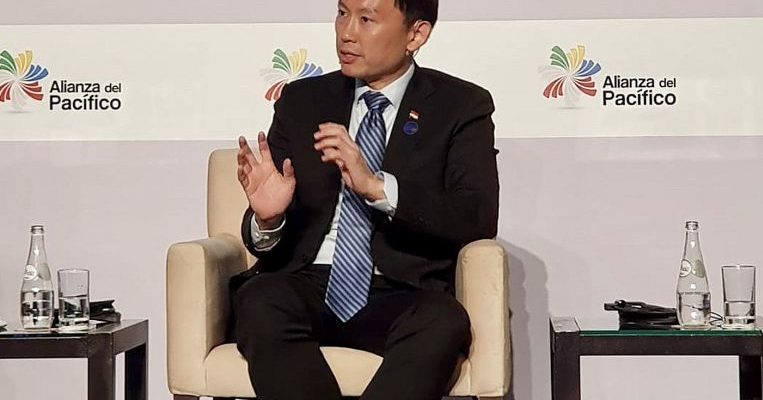
Negotiations are on for a free trade agreement (FTA) between Singapore and the Pacific Alliance, a grouping of four Latin American countries – Chile, Colombia, Mexico and Peru – which together have 210 million people and a combined gross domestic product of US$4.05 trillion (S$5.5 trillion).
Highlighting the importance of connectivity between both sides at the 14th Pacific Alliance (PA) Summit on Friday in Peru, Senior Minister of State for Trade and Industry Chee Hong Tat said an FTA would open investment opportunities across a range of sectors.
Although Singapore already has FTAs with three of the four nations, an FTA with the grouping would “provide an additional platform for Singapore to engage with… the Pacific Alliance as a group”, said the Ministry of Trade and Industry in a statement yesterday.
“There will also be market access benefits from Colombia, with whom we do not have a trade agreement,” it added.
Chile, Mexico and Peru are among the signatories to the Comprehensive and Progressive Agreement for Trans-Pacific Partnership, which is made up of 11 countries, including Singapore.
Chile is also part of the Trans-Pacific Strategic Economic Partnership, which includes Brunei, New Zealand and Singapore.
Singapore has had an FTA with Peru since 2009.
Trade in goods between Singapore and the four PA countries came to US$5.9 billion last year.
Addressing a separate high-level business seminar during his three-day trip to Peru, which ended yesterday, Mr Chee flagged potential for partnerships between firms in Singapore and the PA countries.
-
ABOUT THE PACIFIC ALLIANCE
-
• A Latin American grouping comprising Chile, Colombia, Mexico and Peru.
• Formally established in June 2012.
• Eighth-largest economy worldwide, with a combined gross domestic product (GDP) of US$4.05 trillion (S$5.5 trillion) – making up about a third of Latin America’s total GDP.
-
SINGAPORE’S TRADE WITH THE PACIFIC ALLIANCE
-
• This amounted to $5.9 billion last year, making up 27 per cent of the Republic’s total trade with the 33 Latin American and Caribbean countries.
• Trade in services was $2.2 billion in 2017, accounting for 23.2 per cent of Singapore’s total trade in services with the region.
• Singapore’s stock of direct investment abroad in the Pacific Alliance markets was $3.8 billion as of the end of 2017.
Seow Bei Yi
Such tie-ups could be in areas such as food, modern services, infocomm tech and urban solutions.
He encouraged companies in the PA to consider Singapore, which he described as “a trusted and well-connected hub”, as a base to enter markets in Asia.
CIMB Private Banking economist Song Seng Wun said an FTA with the PA was consistent with Singapore’s approach to expanding trade opportunities for its local firms.
“As we look to diversify our sources of food for food security, we cast our net far and wide,” he said, adding that the escalation of trade tensions globally “accelerates the importance of diversification”.
Mr Thomas Pek, managing director of Tai Hua Food Industries, said he supported a new FTA with the PA, pointing out that favourable trade terms could help companies here venture out while keeping their product costs competitive.
The food manufacturer, which has been exporting soya sauce to Mexico since 2006, has seen year-on-year increases in exports there.
Mr Patrick Zhang, chief executive of SunMoon Food, which sources for seasonal fruit to be exported, said there is “huge potential” in the PA market.
A SunMoon spokesman said about 23 per cent of the company’s business involves trade with Mexico. SunMoon started sourcing from Mexico in 2017, and the amount of goods it buys from the country has since risen by almost 40 per cent.
Besides avocados, which are available year-round in Mexico, SunMoon has been looking into other fruit such as cherries and grapes.
“By working closely with suppliers in the market, we are able to provide Yiguo Group, a fresh food supply chain platform, with a substantial volume of fruit for the China market,” said Mr Zhang.
Outside the food trade, Mr Wong Heang Fine, group chief executive of infrastructure consultant Surbana Jurong, said his company is “well-positioned to support South America in its development plans”.
